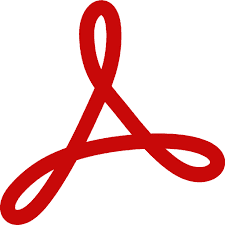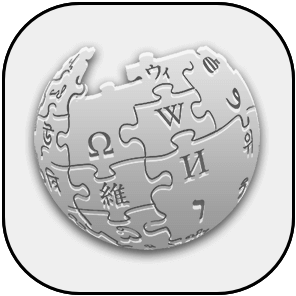What is Coaching?

Coaching can be described as a method and technique which can be used for
guiding an individual to new learning in defined time frames.
There are many definitions for coaching. With so many varying and contradictory
definitions, it has been suggested that entering the debate of defining coaching
is at this present time an exercise in abstraction (Jackson, 2005). Even prolific
academic writers (Clutterbuck and Megginson, 2005) change their viewpoint,
indicating that the field is still developing and fluid. As far back as 1994,
Garvey (1994) refers to 'one-to-one helping' and thus proposes the concept
of redefining the term, with the almost Esperanto-like hope that 'one-to-one
helping' might be the rebirth of a muddied term which though effective in
descriptor terms is not 'sticky' in branding terms.
Some writers have suggested that mentoring is the model for coaching and
that mentoring, as a working title is too formal. They utilize the word coach
as it is a more readily palatable (Hudson, 1999). More recently, in a heroic
attempt to create some form of cohesion within this confused vista, we see
that prominent writers in the field are not happy to accept either activity
as a subset of the other. They state categorically that the distinctions between
these two terms causes confusion and that the community should start to move
to an agreed Coach-Mentor term (Parsloe & Wray, 2005).
Coaching definitions can be as simple and inclusive as, ‘the process
of empowering others’ (Whitmore, 1997). Or more definitive: ‘a process
that enables learning and development to occur and thus performance to improve'.
To be a successful Coach requires a knowledge and understanding of process
as well as the variety of styles, skills and techniques that are appropriate
to the context in which the coaching takes place’ (Parsloe, 1999). Perspective
also plays a huge part in the interpretation of an individual contributors
definition. Mentors view coaching as predominantly skills-related,
with specific capabilities linked to outcome (Cranwell et al, 2004). The coach
shifts the focus to the results of the job (Megginson and Clutterbuck, 1995)
and a primary focus on performance within the current job and emphasizes the
development of skills (Clutterbuck, 2004).
Definitions by coaches have developed over the years. From the somewhat
quaint, potentially dangerous and insular belief that the ‘most important
aspect of coaching is being accepted, respected and taken care of, rather
than the exchange of information between the coach and the coachee’ (Olalla,
1998). To the business definition that pronounces that ‘coaching is an enabling
process to increase performance, development and fulfillment’ (Alexander &
Renshaw, 2005). Interestingly, Megginson (1988) as far back as 1988 proffers
the view that coaching is more effective in a person’s development if actioned
at specific stages. Thus in the context of the business world coaching is
more role, job and project specific (Williams, 2000). If we follow this line
of thought that specific interventions at appropriate times in a persons development
is the most effective methodology, then a review of the broad range of coaching
interventions is required. And we will see that what is new, is that coaching
has amalgamated psychology, sports psychology and education (Zeus & Skiffington,
2000), and is now busy building ‘marketability and credibility’.
Origin of Coaching. History
The term ‘coach’ is first seen in the 1500’s referring to a method of carriage,
actually a horse drawn vehicle, originating in the small Hungarian town of
Kócs (pronounced "koach"). In the mid 1850’s the word coach was utilized in
English universities referring to a person who aided students in exam preparation
(Zeus and Skiffington, 2005) and appears to have links with "cramming" apparently
recalling the multitasking skills associated with controlling the team of
a horse-drawn stagecoach (Wikipedia, 2005). Coaching sees it's roots in
Humanistic Psychology (Zeus & Skiffington, 2000), focusing on a persons
dignity and intrinsic value.
Coaching in the Business World
As the Humanist movement started to emerge we begin to see a parallel emergence
of coaching within the business world, which can be seen within peer reviewed
journals. Gorby (1937) describes older employees coaching new employees to
reduce waste, so as to achieve a performance bonus. Bigelow (1938) recounts
Sales Managers coaching sales people. Mold (1951) reported a 'manager as coach'
program. Hayden (1955) argued that 'follow up' coaching improved appraisals.
Mahler (1964) indicated the difficulties of organizations getting their managers
to be effective coaches. Gersham (1967) evaluated the effect of supervisors
on 'attitude & job performance'. Tobias (1996) reports on a technically 'excellent'
44 yr old manager, who is coached on 'soft skills'. Though reported in ‘peer
reviewed journals’ the referrals are predominantly ‘case studies’ and ‘comment’
as opposed to rigorous analytical works such as the more recent study by the
Manchester Consulting Group (Zeus & Skiffington, 2005). This group reports
a 5.7 times ROI in regard to a coaching program launched between 1996-2000.
Also the research focus was geared towards a manufacturing biased as this
was the financial powerbase at the time and the concepts of ‘empowered workforces’
and ‘human capital’ other than an operational resource was yet to emerge.
Ostensibly the ‘life coaching’ concept demonstrated the first, by
modern definitions, coaching like activity, in a program aimed at high school
dropouts. This work at the forefront of the war on poverty commenced in the
1950’s from a YMCA-sponsored training program in Bedford-Stuyvesant, Brooklyn,
N.Y. Its aim was to search for more powerful counseling/learning methods in
helping people learn the psychological and social skills for coping with the
predictable developmental problems of life (Adkins, 2006). Towards the end
of the 60's research became more rigorous (Grant & Cavanagh, 2004). This focus
on more academic methodologies was the catalyst for the credibility required
by the more progressive commercial bodies. And as such the birth of executive
& business coaching emerged from leadership Programs in the 1980's (Zeus &
Skiffington, 2005).
The real breakthrough of Coaching came with the mix of sports and the
business world, virtually re-inventing itself. Tim Gallwey (1974) with
his Inner Game of Tennis, was a primary catalyst for coaching in a business
context with the quick succession of other notable sports-coaches, such as:
John Whitmore (champion racing driver), David Hemery (Olympic Hurdles Medalist),
and David Witaker (Olympic Hockey Coach).
Coaching in it's modern guise was born out of the Constructionist Learning
Theory (Williams & Irving, 2001), with a core belief that there is no
single, true interpreter or interpretation of reality (Zeus & Skiffington
2005). One can see the birth of coaching from principles that state: we ‘all
construct our own understanding of the world we live in, through reflection
on our experiences’. And interestingly with the 1990's seeing what some believe
to be an upsurge in ‘quasi-philosophical’ groups, finding particular favor
with those involved in management and communications development (Parsloe
& Wray, 2005), it is possible to see how phenomenon's such as NLP (Grinder
& Bandler, 1989) have ‘cherry picked’ from such areas such as Constructionist
theory, Bateson’s (2000) Cybernetics, Chomsky’s (1972) Language Theory and
Landamatics (Landa, 1974). It is this ‘cherry pick’ approach and the demands
of a commercial corporate world that has generated the call for a ‘scientist-practitioner
model of coaching’, where a more academic and rigorous methodology will act
as a benchmark and validation of the field. For many coaching is a long way
from being a profession, despite the existence of those that coach professionally
(Grant, 2003b). The current concerns of definition and validity can be explained
by a profession that has ‘converged’ rather than ‘emerged’ onto its current
position.
Usage of Coaching. Applications
- Business Coach.
- Executive Coach.
- Life Coach.
- Performance Coach.
- Sports Coach.
- Workplace Coach.
Steps in Coaching. Process
Not universally agreed.
Strengths of Coaching. Benefits
- The predominant benefit of coaching to the individual and business is
the facilitation of self-directed learning. Though learning is enabled via
a coach, the true underlying benefit of coaching is in the ability of the
individual to 'move on' from the experience as a more able contributor.
- In terms of retaining and developing talent studies indicate considerable
advantages to companies that actively encourage coaching during transition/change
phases.
- ROI for coaching is considerably higher than standard classroom training,
especially in the executive community, where studies show they disconnect
up to 30 quicker than middle tier staff.
Limitations of Coaching. Disadvantages
- Coaching is not therapy. If it is then the coachee can become dependent.
- Can be seen as a prestige position in a business and thus can create
a cliché of coaches and political influencers.
- Try telling your boss he's a crap coach!
Assumptions of Coaching. Conditions
- Coaching really pulls on the idea of Malcolm Knowles and 'Adult Learning',
which in essence says that the individual has responsibility for their own
learning and all engagements, should be 'guided, rather than led'.
- This is an incredibly complicated topic, for such a simple thing. The
reason being that coaching itself is not by definition a model, models such
as GROW, are the tools of coaching.
- Currently there are no central models that offer a universally accepted
definition.
Book: Zeus & Skiffington
- The Coaching at Work Toolkit
Book: Mary Beth
O'Neill - Executive Coaching with Backbone and Heart
Book: Bruce Peltier
- The Psychology of Executive Coaching
|
Forum discussions about Coaching.

|
Coaching by Managers and by Leaders
I've been a long time manager in multinational companies and I am since 8 years a self-employed business coach. As a professional coach I support my coachees in finding their own solution of their own...
 47  27 comments |

|
The GROW Model / Coaching Framework
There is a coaching model from partnership coaching, called "GROW" involving a set of exploring questions:
G - GOALS - what do we want to accomplish / discuss
R - REALITY - what is happening now
O ...
 40  18 comments |

|
Has Coaching Become Too Technical?
I have been researching coaching for a number of years - partly in the hunt for the 'simple but effective' set of tools. The more I read, the more I seem to get confused.
In my early learning of coac...
 23  9 comments |

|
Qualities of a Good Coach. Checklist
The importance of coaching cannot be underestimated. However, identifying a good coach is far from easy. Here's a checklist of qualities for a good coach I recommend:
- More knowledgeable in the area...
 20  5 comments |

|
Effective Coaching
An effective coach is a skilled and knowledgeable individual who understands that all individuals, if they are not already achieving their true desires, are offering some form of resistance in terms o...
 15  6 comments |

|
The Impact of Personal Coaching
Personal career coaching is akin to having a skilled navigator on a journey towards professional fulfillment. A coach serves as a GUIDING LIGHT, illuminating the path, and providing valuable insights ...
 15  11 comments |

|
How to Get Help from Someone Else?
Most people are a bit reluctant to ask for help, especially in the work environment. That is because we feel uncertain, are afraid to be rejected, or fear for diminished status.
Heidi Grant argues th...
 11  9 comments |

|
Coaching as Social Capital
I have always been fascinated by the references in the literatures and in coaching trainings to the coach-client relationship. Clearly the relationship is important, but is it anymore important in oth...
 11  4 comments |

|
The Need for Relational Coaching
The term 'Relational Coaching' might seem to be synonymous to Coaching, since coaching always involves at least two people that communicate and form a relationship in some way. However, the term relat...
 11  4 comments |

|
Coaching and Pedagogy
I would like to see the difference between coaching and the roman concept of pedagogical leading.
To me, the difference could be the knowledge the coach should have about the strenghts of the coachee...
 10  4 comments |

|
Use of the Body in Coaching
What do you think about coaching approaches that use the body to generate awareness and to develop soft skills…
- Are they acceptable in your culture?
- Do they fit in corporate coaching?...
 9  5 comments |

|
How to Raise Productivity by Coaching?
Be patient + be patient + be patient = success in coaching, but it is too hard to raise the productivity by coaching only.
There are too many factors involved to increase the productivity and there a...
 8  2 comments |

|
The Wheel of Life: Balance your Life
Life is not uni-dimensional; balance in life comes from fulfillment in all areas. If we overly focus on one or just a few areas of our life, these tend to to weigh heavily on our psyche and bring abou...
 7 |
|
|
|
Courses about Coaching.

Beginners Course
|

Advanced Course
|

Course for Experts
|
|
|
|
The best, top-rated topics about Coaching. Here you will find the most valuable ideas and practical suggestions.
|
🥇
|
Team Coaching by Managers
Are you a manager or a coach? According to a new book by Google's Eric Schmidt, Jonathan Rosenberg and Alan Eagle there is little difference.
The Trillion Dollar Coach is a tribute to Bill Campbell...
 35  8 comments
|
|
🥈
|
Mentoring versus Coaching
Mentoring has high interest for me. Based on my observation and that of other officers, a great gap exists in planning and delivery. So mentoring should help to improve teacher competencies. A more ex...
 28  23 comments
|
|
🥉
|
ACT Hexaflex Therapy and Business Coaching
What is ACT Hexaflex Therapy. Meaning
ACT is a behavioural-focused psychological flexibility treatment or therapy which was developed by Steven C. Hayes in the 1980s. ACT is a process-based therapy, ...
 21
|

|
Preconditions for Successful Coaching
I believe that coaching is a tool that helps to facilitate the learning progress of certain practices or habits. It does not produce a change on its own. It depends a lot on the WILL of the one being ...
 19  4 comments
|

|
Coach People's Strengths or Weaknesses?
Coaching people's strengths I find is much more effective than coaching their weaknesses. Working on a strong usually preferred area is more motivating than concentrating on something that perhaps the...
 18  5 comments
|

|
Why Leaders Need Coaching
Leaders must be very conscious of their actions and of the impact they have on others. Coaching is an excellent tool to gain consciousness. Any other reasons why coaching is particularly useful for le...
 12  9 comments
|
|
|
|
Advanced insights about Coaching. Here you will find professional advices by experts.

Consultancy Tips
|

Teaching Tips
|

Practical Implementation Tips
|
|
|

|
Myths on REACHING the top What Experiences, Qualifications and Characteristics are Needed to Reach the Top?
I'd like to contribute a summary of an article by HRM Professor Monika Hamori of Instituto de Empresa Business School. H...
|

|
How to Prepare Someone for a Critical Situation Leadership, Crisis Management, Preparing for a Major Event, Preparing for a Pivotal Moment, Coaching, Negotiating
When people are connected to their core self and values, they are more likely to achieve their best performance as they ...
|

|
Write a Personal Mission Statement Establish focus on who you want to be in your life...
Covey wrote this pearl of wisdom in his book Seven Habits: "The key to the ability to change is a changeless sense of wh...
|

|
Building an Organizational Coaching Capacity Developing an Organizational Coaching Capacity, Learning Organization, Developing Coaching as an Organizational Capacity
COACHING ON AN INDIVIDUAL LEVEL
In their book "Trillion Dollar Coach: Lessons for Managers", Google's Schmidt, Rosenber...
|

|
GENIUS Coaching Model Coaching Talented People
I developed the GENIUS coaching model as a guide to managing a creative thinking coaching session. This grew out of my e...
|

|
What is Your Leadership Point of View? Reflection on your Leadership Style
In my experience very few leaders are able to define and succinctly articulate their leadership point of view. The reaso...
|

|
Promotion-focused versus Prevention-focused Employees Motivating your Coachee
An interesting way to look at coachees for motivation purposes is described by Heidi Grant Halverson and E. Tory Higgin...
|

|
Personal Benefits of Coaching Explaining the Advantages of Coaching at Coacheel Level
Here is a list of some typical advantages of using a coach as an assistant to your personal and professional development...
|

|
History of Coaching Organizational Development, Background of Coaching
- In the context of management, the term coaching appears to have first been used by Myles Mace in 1958 and was seen as ...
|

|
The GROWTH Framework for Coaching Extended Coaching Model to Guide Coach-Coachee Interactions
The GROWTH model adds two more dimensions to this coaching model. Once deciding what the coachee will do, we look at:
-...
|

|
Identify and Develop Leadership Abilities Leadership Development, Management Development, Coaching, Mentoring
Covey's 4 Roles of Leadership® helps managers to identify and develop 4 important abilities of 'true' leaders:
Modeling...
|

|
Organizational Benefits of Coaching Explaining the Advantages of Coaching at Organizational Level
Here are some typical benefits of using a coach to overcome problems within an organization:
- Coaches may help to iden...
|

|
What is the Opposite of Situational Leadership? Leadership Development, Management Development, Coaching, Mentoring
Situational Leadership can be seen as an adaptive style. The opposite, non-adaptive, or inflexible, style of leadership ...
|

|
Five Leadership Development Ideas Leadership Development, Management Development, Coaching, Mentoring
Although years of research and analysis by biographers, historians, and scholars have produced an enormous library of bo...
|

|
How to Develop your Own Leadership Philosophy Leadership/Management Development, Coaching, Mentoring
In an article “When should a leader be directive or empowering? How to develop your own situational theory of leadership...
|

|
Ineffective Behavior Analyzing Manager, Employee or Self Behavior
There are many different forms or manifestations of ineffective behavior, such as
- Finding it difficult to say 'no'.
...
|

|
4 Patterns of Behavior Creating Behavioral Awareness
According to Willem Roding there are 4 patterns cuasing behavior:
1. INSTINCT: Stimulus --> Reflex. Automatic decision:...
|

|
The Relationship between the Power of Leaders and Overconfidence Leadership, Power, Leadership Development, Executive Education
Fast et al. (2012) researched the relationship between power and overconfidence. In many cases it can be seen that decis...
|

|
Psychoanalysis and Coaching Similarities and Differences
Psychoanalysis is focused on what does not work, on dis-functional thoughts and behaviour, depending on the approach it ...
|

|
Recognizing Distressed Managers in Leadership Pipeline Transition Coaching, Mentoring, Management Development, Leadership Development
Moving from one manager level/phase to the following in the Management / Leadership Pipeline is a difficult task. Freedm...
|

|
Freud's Personality Types Personality Types, Leadership Development, Management Development, Coaching, Mentoring
Freud recognized that there are an almost infinite variety of personalities which could be in the end broken down into 3...
|

|
How to Assess Relational Skills of the Coachee? Human Resources, Leadership
You can use the 4 dimensions of relational skills to assess relational skills:
Influence skills:
- Look for a history...
|

|
How to Develop Better Relational Skills? Human Resources, Leadership
Although it is not necessary to be interested in or skilled at all four dimensions of relational work in order to succee...
|

|
CEOs Time Spent per Stakeholder / Constituency CEO Coaching, CEO Time Management, Stakeholder Management
Research by Porter, Nohria and Higgins among 27 CEOs revealed the following interesting data on with whom they spend the...
|

|
The Best Managers in Coaching Employee Development, Employee Growth, Coaching by Managers, Mentoring, Career Management, Management Development
Gartner (2018) surveyed 7,300 employees and executives across 25 industries and found that there are 4 types of managers...
|

|
Family-Work Conflicts (FWC) and Daily Job Performance Family-work conflicts, Coaching, Mentoring, Job Performance
FAMILY ROLES and WORK are two factors influencing each other: - Work can interfere with family roles; this is called a W...
|

|
Practical Tips to Increase the Performance of your Employees Employee Development, Employee Growth, Coaching by Managers, Mentoring, Career Management, Management Development
The performance of an employee (or a team of them) depends on many factors. One of the main factors is how well the empl...
|

|
Leadership Self-Assessement Leadership Training, Leadership Development, Coaching, Mentoring
Before you seek training in leadership, you should assess your strenghts and weaknesses as a Leader by comparing with th...
|
|
|
|
Various sources of information regarding Coaching. Here you will find powerpoints, videos, news, etc. to use in your own lectures and workshops.

|
The Fatal Coaching Mistake by Managers Coaching, Mentoring, Management, Leadership
Managers and executives often don't realize how much influence they have over their staff, by just being their superior...
|

|
How to Become a Master Manager? Introduction to Managing People. Know Thyself
This good introduction presentation is about how to be a Master Manager. By J. S. Osland, D. A. Kolb, I. M. Rubin and M....
|

|
Introduction to Coaching Employees Organizational Coaching, Employee Assistance
Presentation about Coaching, thereby focusing on Employee Assistance (EA) coaching.
1. The Importance of Coaching
2. C...
|

|
Coaching vs Counseling A Comparison
Comparison of counseling and coaching on 6 characteristics....
|

|
Building the Helping Relationship 10 Principles for Facilitative Consultancy
Superb article by MIT Professor and OD consultant Edgar H. Schein in which he concludes that:
"... The decisive factor ...
|

|
Assess your Personality Type to Plan your Career Career Management, Career Planning, Personality Types
This presentation elaborates on how to define your personality and the career that suits best to you. The presentation i...
|

|
NLP: The 6 Neurological Levels 6 layers to view at the reality of a person or issue
Neuro Linguistic Programming (NLP) is used increasingly by businesses and individuals in HR, marketing, sales and organi...
|

|
Hearing versus Listening Communicating Effectively, Active Listening, Coaching, Mentoring
A comprehensive presentation about listening and how to do it well.
Includes a scheme of the steps in the listening pro...
|

|
Daniel Goleman on Competence Development Competence Development, Coaching, Mentoring
Daniel Goleman gives 5 steps on how to develop a personal competence:
1. Ask yourself: Do I really care?
2. Get honest...
|

|
Coaching vs Mentoring A Comparison
Comparison of mentoring and coaching on 7 characteristics....
|

|
Introduction and Summary of (Executive) Coaching Initial Understanding of Coaching
Chris Ruisi explains:
1. What is coaching?
2. What makes a good coach?
3. What is special about executive coaching?
...
|

|
Steven Covey on his 8 Habits of Effective People / Managers / Leaders Understanding the 8 Habits of Covey. Leadership Development, Management Development, Coaching, Mentoring
In this video Steven Covey explains his 7 habits plus the 8th habit he added later:
1. Be proactive
2. Begin with the ...
|

|
The Performance Effects of Coaching Coaching, Performance
Paper by Ritu Agarwal, Corey M. Angst and Massimo Magni on the effects of managers' coaching intensity on the performanc...
|

|
How to Manage Challenging Situations and Challenging People? People Management, Conflict Management, Persuasion, Challenging Situations
This presentation is about the management of Conflicts, other challenging situations and about managing challenging peop...
|

|
Manager? Why you need Coaching and Mentoring Skills Management Skills, Coaching Skills, Mentoring Skills, Management Development, Leadership Development
Effective managers understand the difference between their role as a mentor and as a coach in developing their people an...
|

|
Practical Communication Tips for Managers Management Skills, Leadership Skills, Management Development, Leadership Development, Situational Leadership
As manager you need to combine professional expertise and experience with specific character traits, interpersonal and c...
|

|
Communication Essentials: Non-verbal, Verbal and Listening Skills Communication Skills, Personal Skills, Confidence, Power, Influence, Sincerity, Trust
Presentation about communication skills, including non-verbal and verbal communication and listening skills. The present...
|

|
Mindfulness and Wellbeing at Work Wellbeing, Well-being, Mindfulness, Motivation, Employee Commitment Time Management, Coaching
This presentation elaborates on the concept of mindfulness in the workplace, and includes the following sections:
1. Ou...
|

|
The Role of Supervisor | Skills of Supervisors Skills of a Supervisor, Supervisor Role, Supervisor Behavior
This presentation elaborates on the skills that supervisors need in order to be successful in their business/organizatio...
|

|
All the World is a Stage (Shakespeare) Impression Management, Communication
Explanation of the main ideas of sociologist Erving Goffman regarding Impression Management.
Shakespeare wrote: "A...
|

|
Johan Cruijff on Coaching Coaching, Mentoring, Goal Setting, Teamwork
In this video legendary Dutch football player and coach Johan Cruijff (1947-2016) presents some of his inimitable ideas ...
|

|
Young Steve Jobs on the Role of Managers Management, Leadership, Talent Management, Talent Acquisition, Talent Development
This video is a nice start for any management course. Jobs shares some ideas on managers (in a high-tech environment) an...
|

|
How you can Change and Improve Yourself Self Development, Coaching, Mentoring, Management Development, Leadership Development
Coach Tony Robbins explains that you can only achieve good results in changing or improving yourself if you:
Not onl...
|

|
Peer and Co-worker Relationships Relationship Management, Emotional Intelligence, Coaching, Emotional Work, Relationship at Work, Employee Relationships
This presentation is about the relationship between peer and co-workers, and includes the following sections:
1. Nature...
|

|
Guide Toward Coaching your Employees Coaching Employees, Performance Reviews, Giving Effective Feedback
Presentation that provides information about the ways to effectively coach employees. The presentation includes the foll...
|
|
|
|
Useful tools regarding Coaching.

News
|

Videos
|

Presentations
|
| |

Books
|

Academic
|

More
|
|
|
|
Compare with Coaching: Mentoring
| Intervention Styles
| Leadership Pipeline
| Hagberg Model
of Personal Power | Cultural
Dimensions |
Cultural Intelligence
| Emotional Intelligence
| Managerial Grid
| 4 Dimensions
of Relational Work |
Maslow Hierarchy of Needs
| ERG Theory |
Spiral Dynamics |
Changing
Organizational Cultures |
Expectancy Theory
| Whole Brain Model
| Seven Habits |
Seven Surprises
| Johari Window
| EPIC ADVISERS
| Leadership Styles
| Level 5 Leadership
| Interim Management
Return to Management Hub: Change & Organization | Communication & Skills | Human Resources
| Leadership
More Management Methods, Models and Theory
|
|
|














